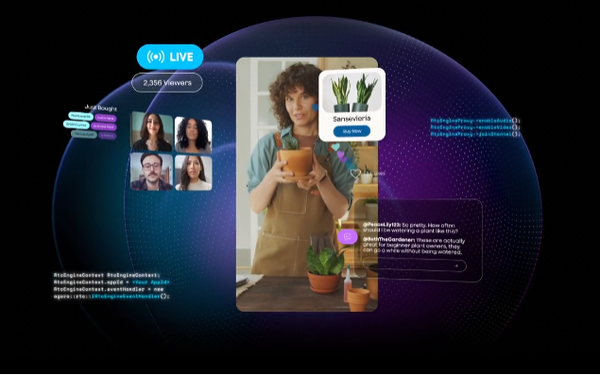
Image source: Agora
Google may have
triggered a trend in 2017 with a service that allowed users to schedule appointments and make reservations. Now Amazon wants to build AI agents that will perform specific tasks without human intervention.
These agents, trained on data,
would become smart enough to carry out tasks such as shopping without being asked.
This reminds me a little of smart refrigerators that were designed to detect when a consumer ran low on an
item, and then reorder it without being asked. At the time, the industry called these technologies the Internet of Things.
Amazon on Wednesday announced AI-generated shopping guides for hundreds of product categories. They are
scheduled for release on Thursday.
advertisement
advertisement
Guides will contain key data about consumers and what they tend to research before making a purchase, along with a list of the most trusted brands in that
categories.
Rather than just focus on larger purchases such as TVs, kitchen appliances or rugs for the home, they also include everyday items like moisturizers, running shoes and
headphones.
The guides are intended to help consumers narrow down options by browsing through a refined set of products based on specific needs -- a feature that some might call automated
search.
The guides use Amazon's large language models (LLMs) to reveal helpful attributes, use cases, features, brands, and terminology for each product type from its catalog of data, and
then generate tailored guide descriptions based on this information, paired with product recommendations.
They also are built using Amazon Bedrock, which provides access to the latest foundation models and AI tools.
AI will not only automate the buying process but make the
experience to converse (or not) with a machine feel increasingly natural.
Agora, with about 1,500 employees worldwide, may be the latest tech company to be part of this explosion to make
technology feel more human-like on billions of devices for video, voice and chat.
Sid Sharma, vice president of developer experience at Agora, which focuses on real-time communication
like video, streaming and audio, said
The company's SDK is installed on about 3.5 billion devices worldwide, and it processes about 50 billion minutes monthly. Think about how Microsoft
built its developer network. The same is happening with Amazon and OpenAI.
Agora's AI makes people feel as if they are speaking with a friend. The company recently launched a
Conversational AI SDK integrated with OpenAI’s Realtime API. This isn’t just about adding an AI to apps. It’s a voice-driven AI experience that lets you interrupt the conversation to
lead it in a new direction.
During Sharma's demo, Agora's technology transported the audio to OpenAI's server. It generates a response and sends the information back to the person's
device.
When asked how advertisers can monetize a ChatGPT 4 bot, the bot said through subscription models, lead generation, and integration into ecommerce and online store.
Agora’s SDK enables developers to create applications where users speak to AI in the same way they would speak to a human, receiving intuitive and contextually relevant responses in
real-time.
By connecting Agora's low-latency network with OpenAI's language models, the company eliminated barriers between human speech and AI comprehension.
The Conversational AI SDK
relied on Agora’s intelligent routing and ultra-low latency, real-time network. It powers 60 billion minutes of real-time interactions monthly in more than 200 countries and regions globally to
enable voice interactions with OpenAI via the OpenAI Realtime API.
Developers can now build AI voice agents for shopping, customer support, concierge services, health and wellness, gaming,
education and the ability to teach a human a different language, and act as voice interfaces for many other types of services.